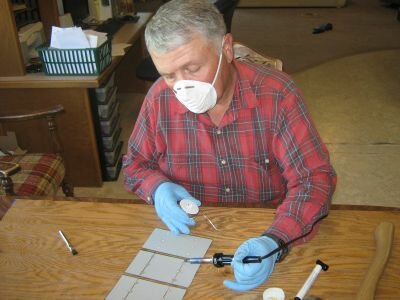
Okay, here’s the scenario. You’ve decided to use solar power for your home to cut your monthly electricity bill. You want to build the system on your own because you have some construction and electrical wiring skill. You are very eager to get started. You’ve come up with a budget and started sourcing for the parts and component from the hardware store.
Did you missed out anything?
Have you check your district “Code” in regards to putting up a DIY solar array on your roof?
It seems this is the boring but necessary part of the whole home improvement project.
Checking for the building code is a major red tape hassle. The people at the government agency seem more concerned in getting forms filled and stamping it. Nonetheless, this is one important part of the project that you shouldn’t miss.
Why do you have to follow the code for your DIY home solar system? I came out with 4 points on the subject:
1) It is the law.
Code is basically the law. It will be a good idea for you “not” to break any laws in your district.
Laws are there for a reason. I am not a lawyer, but I know it is important.
Your neighbor might not like the solar panel that you put up on your roof. It may be blocking his view or he is just a nasty person. You can go ahead to build your solar array but your neighbor may turn on you.
He can call the authority and the bureaucrats will come over with a stop order. You will be asked to remove whatever you’ve done (even if you finished your home solar project) and then hand you a fine.
All of this because you did not follow the law.
2) A minimal safety standard.
Codes are there to provide some level of safety standards. Especially if it involves electrical and plumbing works on your house.
If there is a problem with the system and if your house were to caught fire, the insurance company will want to know that you’ve follow all the safety codes.
If you don’t know what the codes are, how can you follow them? If you don’t follow the codes, do you think the insurance company will approve your claim? You have a slim chance on that. Check with your insurance agent on this matter.
3) Protecting yourself, legally.
If you were to outsource your home solar power project, you can leave all the issue with codes to the solar contractor. But make sure they get all the permits required.
If they fail to get the permits, they may land themselves or you in a legal problem. More importantly, it is impossible for you to sue the contractor if something goes wrong. That is one messy situation you don’t want to get yourself into.
4) Reducing your legal liability.
You want to reduce any legal liability you may have to face if somebody is injured on your property, especially from injury caused by the solar components.
Play it safe, go for the safer route.
5) Getting your rebates and warranties.
Some districts give rebates to home owners for using renewable energy for homes. But in order to enjoy the rebates, the solar system has to be built according to the code.
Some solar component manufacturers insist that you get a professional to install their equipment or you will void the warranty.
The 5 points above is not a comprehensive list. If you have any thoughts why we should follow all local codes for a home solar power system, feel free to include your feedback in the comment section below.
Home Solar And Wind Power Videos
Do you want to know how you can use solar modules or wind generator to reduce your home energy consumption? If you do, check out the 30 solar and wind power for home videos e-book we’ve compiled. It’s free to download.
==> Click here to download the free e-book now!
Do you like the information on this blog? If you do, you can subscribe to our RSS feed for the latest blog updates.